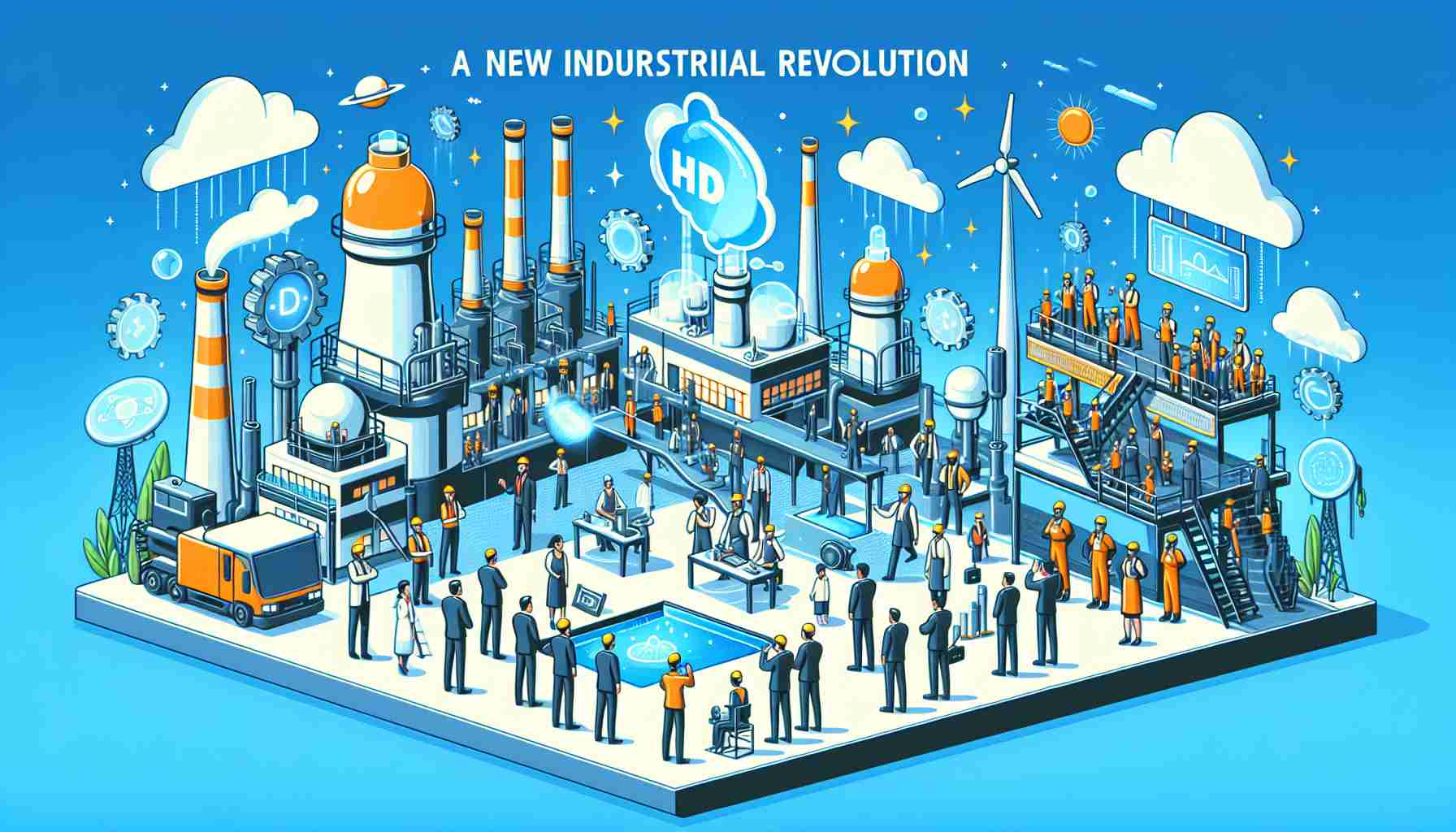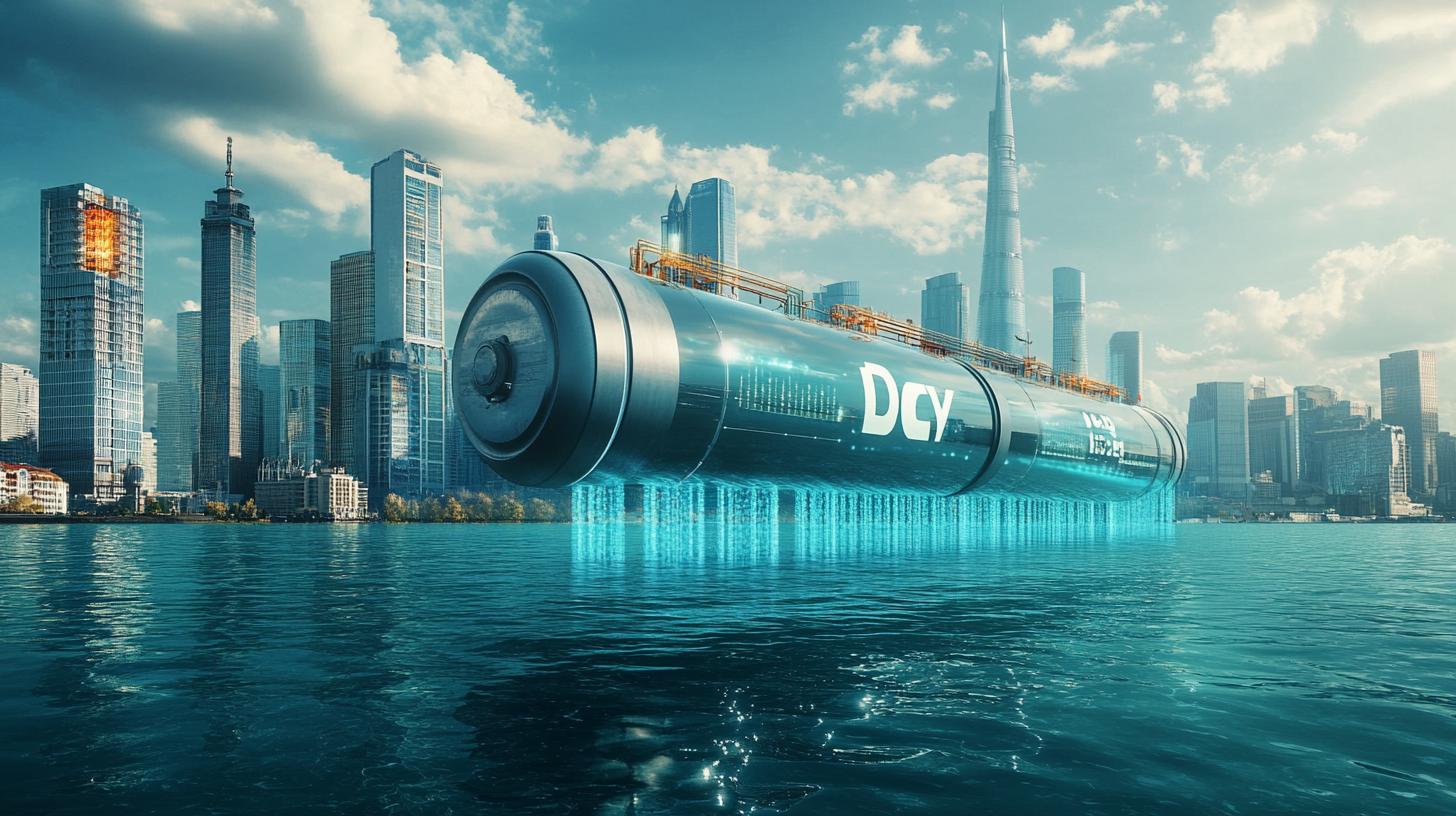The quest for cleaner energy solutions has led to a transformative shift in industrial development. Recently highlighted at a prominent forum in Davos, hydrogen is emerging as a pivotal element in the growth of international industrial clusters.
The Transitioning Industrial Cluster initiative, which kicked off at COP26 in 2021, has expanded to include 33 clusters across 16 nations. Alongside Accenture and EPRI, this initiative champions the integration of hydrogen into various industrial processes.
Notable new members include:
– Kerala Green Hydrogen Valley in India, aiming to revolutionize transportation through hydrogen.
– Cartagena Industrial Cluster in Colombia, strategically leveraging its port for hydrogen production and distribution.
– The Hunter Region in Australia, fostering innovation and collaboration to advance a sustainable energy economy.
– Jubail Industrial City in Saudi Arabia, exemplifying synergistic industrial development to lower carbon outputs.
In total, these 33 clusters collectively have the potential to reduce carbon dioxide emissions by approximately 832 million tonnes—equivalent to Saudi Arabia’s annual emissions.
According to the head of the Centre for Energy and Materials at WEF, the key to accelerating the energy transition lies in connecting these industrial hubs, thus paving the way for a resilient and sustainable global economy. As hydrogen continues to take center stage, industries worldwide are seeking innovative pathways to make cleaner energy a reality.
The Broader Implications of the Hydrogen Economy
The transition to a hydrogen-centered industrial framework is not merely a technological shift; it is poised to reshape society, culture, and the global economy. Hydrogen’s versatility and potential for decarbonization could redefine energy consumption patterns, influencing everything from manufacturing to transportation. As countries mobilize to embrace hydrogen, they may experience increased international collaboration, leading to a more interconnected global economy—though this will necessitate significant investment in infrastructure and policy reforms.
Societal transformations are also on the horizon. As regions invest in hydrogen production, there could be substantial job creation in green technology sectors. For instance, while areas like the Kerala Green Hydrogen Valley focus on revolutionizing transportation, others may redefine local economies by turning ports into green energy hubs, as seen with Cartagena Industrial Cluster. This could inspire cultural shifts towards sustainability, encouraging communities to adopt more eco-conscious lifestyles.
Moreover, the environmental implications of hydrogen are profound. With the potential to reduce CO2 emissions significantly, these initiatives could contribute to global climate goals, supporting movements towards net-zero emissions. As more industrial clusters emerge, they can enhance resilience to climate change, fostering a sustainable ecosystem that prioritizes not just economic growth but environmental stewardship.
In terms of long-term significance, the hydrogen economy may drive technological advancements and innovation. With international collaboration becoming increasingly essential for progress, the race for hydrogen supremacy may prompt nations to invest in research and development. Future trends may see advancements in hydrogen production technologies, making it cheaper and more efficient, while simultaneously positioning hydrogen as a cornerstone of a truly sustainable global industrial landscape. As this journey unfolds, the implications extend far beyond mere energy solutions, creating a new paradigm for living in harmony with our planet.
Hydrogen: The Game Changer in Sustainable Industrial Development
The Rise of Hydrogen in Industrial Clusters
The ongoing search for cleaner energy solutions is reshaping industrial development globally. Hydrogen, in particular, has been highlighted as a critical component in fostering the growth of international industrial clusters focused on sustainability. This emerging trend was recently showcased at a high-profile forum in Davos, emphasizing the significant role hydrogen plays in the energy transition.
The Transitioning Industrial Cluster Initiative
Launched at COP26 in 2021, the Transitioning Industrial Cluster initiative has successfully grown to encompass 33 industrial clusters across 16 nations. This initiative, supported by key players such as Accenture and EPRI, aims to incorporate hydrogen into diverse industrial processes. The initiative represents a united effort to drive innovation while addressing climate change challenges through cleaner energy sources.
New Members Making Strides in Hydrogen Adoption
Several notable additions to the initiative underscore the global commitment to hydrogen integration:
– Kerala Green Hydrogen Valley (India): This project pursues transformative changes in transportation by promoting hydrogen as a clean fuel alternative.
– Cartagena Industrial Cluster (Colombia): Positioned strategically near a port, this cluster focuses on hydrogen production and distribution, optimizing logistics for cleaner energy transport.
– Hunter Region (Australia): This area champions innovation and collaborative efforts to enhance its sustainable energy economy, leveraging hydrogen’s potential.
– Jubail Industrial City (Saudi Arabia): As a hub for synergistic industrial development, Jubail aims to lower carbon outputs significantly through hydrogen technologies.
These clusters collectively have the capacity to reduce carbon dioxide emissions by an estimated 832 million tonnes, roughly equivalent to the annual emissions of Saudi Arabia. This potential highlights hydrogen’s capacity not just for industrial transformation but also for significant climate impact.
Trends and Insights in Hydrogen Integration
As industries pivot towards sustainability, the following trends and insights emerge:
– Innovative Applications: Hydrogen is being explored for use in various sectors, from transportation to manufacturing. Its versatility is making it a favored option for companies seeking to minimize their carbon footprint.
– Economic Opportunities: The shift towards hydrogen presents not only ecological benefits but also significant economic opportunities through job creation and technology development within new energy sectors.
– Collaborative Frameworks: The success of the Transitioning Industrial Cluster initiative is rooted in partnerships and collaborations across nations and industries, fostering knowledge sharing and technological advancements.
Limitations and Challenges
Despite the optimistic outlook, the transition to hydrogen as a mainstream energy carrier faces challenges:
– Infrastructure Development: Significant investment is needed to develop the infrastructure required for the production, storage, and distribution of hydrogen on a large scale.
– Regulatory Hurdles: Different countries have varying regulatory environments, which can complicate cross-border initiatives and technology sharing.
– Public Perception and Awareness: Educating the industry and the public about the benefits and safety of hydrogen is crucial for its acceptance and integration into current energy systems.
Conclusion
The future of hydrogen as a key player in the quest for cleaner energy solutions looks promising. The collective efforts of international industrial clusters signal a strong commitment to sustainable practices, with hydrogen at the forefront. As this technology continues to evolve, it holds the potential to redefine energy landscapes, reduce emissions, and drive economic growth on a global scale.
For further information on the development of hydrogen technologies, visit World Economic Forum.











